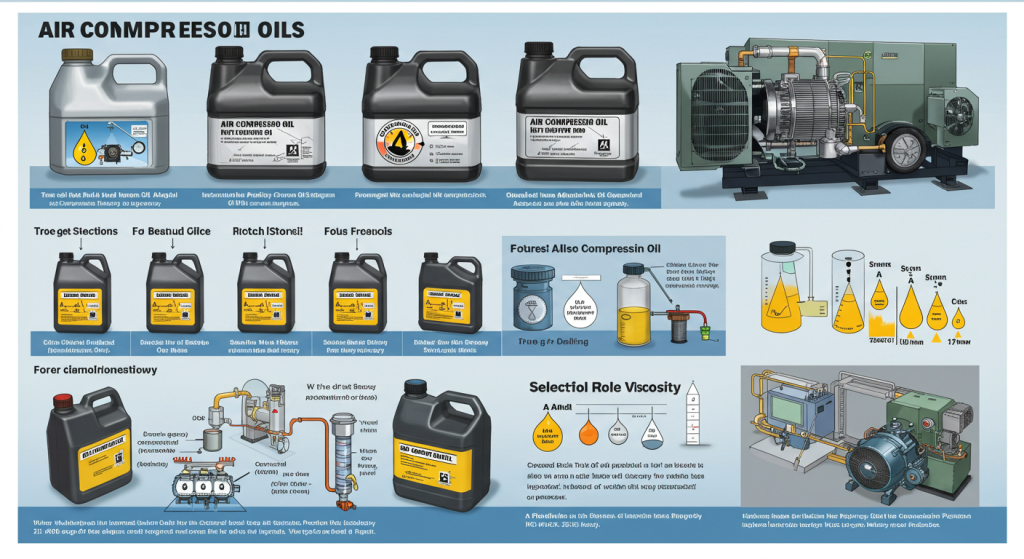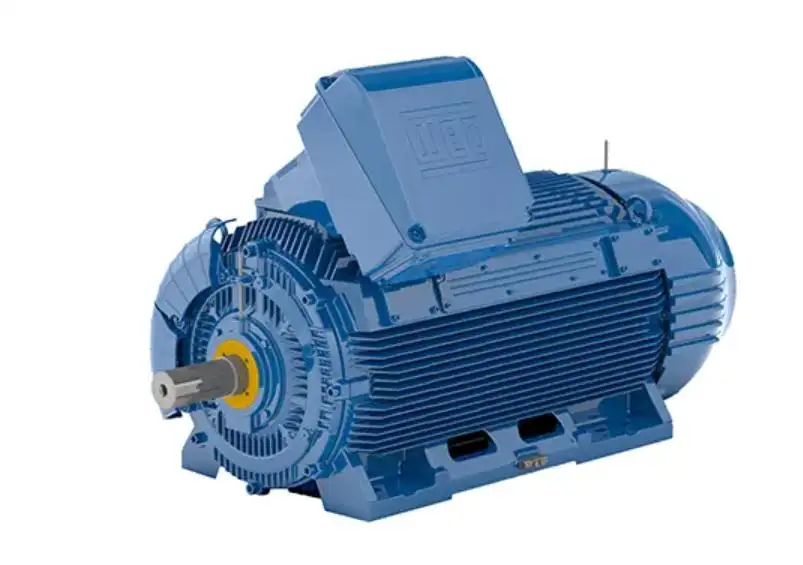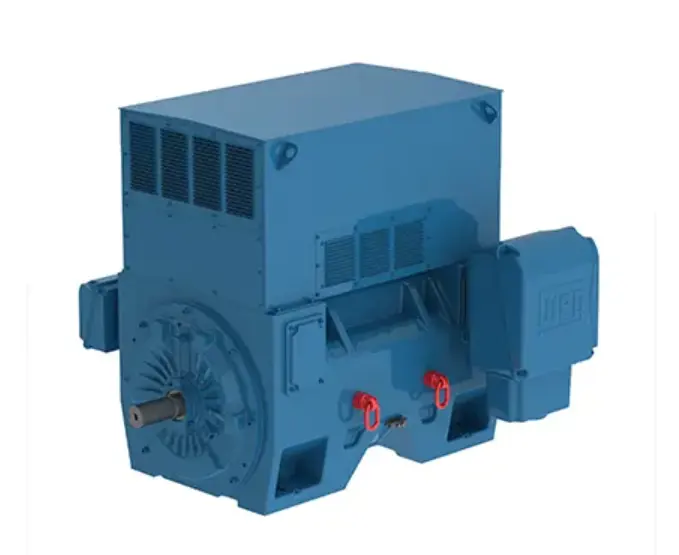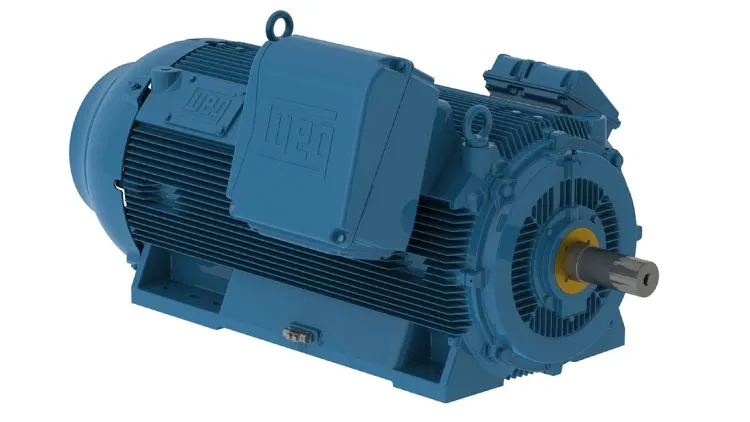The Ultimate Guide to Choosing the Right Air Oil Compressor Lubricant
- What are the of air compressor oil types? Whether you’re keeping an assembly line moving, tuning up cars in a shop, or tackling weekend projects in the garage, the air compressor is almost always there. But behind that steady hum is a thin film of oil working hard to prevent metal from eating metal.
- This guide will lay out the different classes of compressor oil- mineral, synthetic, and small-unit formula-and show you how each one matches up with the tasks you throw at your machine; will break down ISO VG numbers into plain language, too, so you won't need a degree to select the right weight for your setup.
Core Types of Air Compressor Oil
Compressors may pull air from the room around them, but they rely on internal oil to keep moving parts cool, sealed, and free of abrasive debris. As a result, compressor oil plays a role far larger than most people realize. Because every workshop and factory has its own pressure, temperature, and duty cycle, lubricant makers have developed distinct formulas to meet those demands instead of hoping a one-size blend can do it all.
1. Mineral Compressor Oil
Mineral oil is the simplest, cheapest air-compressor lubricant you can buy. Extracted from crude oil and refined to remove impurities, it contains the natural hydrocarbons found in petroleum. Though the blend lacks the hi-tech additives of synthetic products, it still delivers fair protection to compressors that work only during light or moderate shifts.
This Oil Suits:
- Piston (reciprocating) compressors
- Cool or temperate workshops
- Garage setups and small factory cells
The downside is lifespan: mineral oil breaks down quickly under intense heat and may leave behind sludge or carbon at the pump ports.
Pros:
- Easy on the wallet
- Readily stocked everywhere
- Simple swap at service time
2. Synthetic Compressor Oil
Synthetic oil begins as a lab formula, crafted molecule by molecule to deliver top performance. Every batch is designed for thermal stability, rapid flow, and clean internals, so it keeps working harder in extreme heat and cold. Oxidation and varnish are kept at bay, giving compressors that use it a cleaner, longer life. You will find it ideal for:
- Rotary screw or rotary vane machines
- Heavy-duty, hot-factory settings
Thanks to its predictable chemistry, synthetic oil fights wear, holds up under shock, and stretches change windows, turning routine costs into savings over the run of the equipment.
- Full-Synthetic Compressor Oil
Entirely made from synthetic base stocks, this oil delivers the highest level of protection under extreme loads. Users praise it for:
• Superb lubrication even under heavy stress
• Remarkably long service life- usually 2,000 hours or more
• Reduced wear and fewer deposits inside the machine.

3. Blended Compressor Oil (Semi-Synthetic)
Blended or semi-synthetic oil pairs affordable mineral stock with a dose of synthetic chemistry. Its cost-effective mix suits anyone who wants a step up in performance without paying the full synthetic premium. These oils fit:
• Medium-duty equipment
• Automotive service bays.
• Tools that run at moderate temperatures.
They last longer and resist oxidation better than straight mineral oil, yet they do not match full synthetics.
Pros Include
• Balanced price and performance
• Better oxidation resistance than mineral stock
• So-called wide-temperature compatibility.
4. Food-Grade Compressor Oil
Crafted for the food, beverage, and pharma worlds, food-grade compressor oil is safe if it accidentally touches the product. It is non-toxic, odorless, and compliant with exacting rules such as NSF H1. Typical uses are:
• Food packaging lines.
• Medical breathing-air systems.
• Drug-manufacturing plants.
The oil resists breakdown, lubricates superbly, and keeps contaminants at bay.
5. Biodegradable Compressor Oil
These green oils, usually made from plant esters or specially engineered synthetic ones, suit jobs in places where spills could hurt nature. Because they break down naturally, they are popular in:
• Agriculture
• Marine industries
• Outdoor operations
They cost a bit more, but buyers value the extra peace of mind and easier compliance with eco rules.
Key Functions of Air Compressor Oil
Air compressor oil does far beyond greasing moving parts and shaping how well, quietly, and long a machine works. Whether rotary screw or reciprocating, the right formula keeps the system on its game when the pressure climbs.
- Lubrication
First and foremost, oil cuts friction between metal surfaces, slowing wear and lifting overall efficiency.
- Sealing
In rotary screw units, the slick film fills tiny gaps between rotors, boosting compression and delivering more air.
- Cooling
Compressors run hot, and oil absorbs that heat, shuttles it away, and guards parts against meltdown.
- Rust Prevention
Most formulas add corrosion fighters that shield steel and alloy components from moisture-related rust.
- Viscosity Stability
Good compressor oil keeps its thickness, even through wide temperature swings, so the machine runs like clockwork.
- Foam Resistance
Foam-busting additives trap air bubbles before they sparge into the oil stream and weaken lubrication.
- Oxidation Control
A strong resistance to oxidation curbs sludge, varnish, and carbon build-up, leaving your system cleaner and more reliable.
Choosing the Right Compressor Oil
Picking the right oil is vital for smooth running, safety, and long service life. Because so many formulas flood the market, the task can seem daunting. These quick steps will help you decide.
- Check the Manual
Start with the user’s manual. It lists the recommended oil grade and viscosity, spelling out what your unit needs to run efficiently and safely.
- Match ISO VG Grade
Viscosity does count. The ISO VG numbers 32, 46, or 68 show how thick the fluid is. Higher numbers suit hotter shops or heavy workloads; lower numbers fit cooler climates.
- Consider the Environment
For hot rooms or strenuous cycling, choose a high-quality synthetic. In food, beverage, or drug plants, lean on NSF H1 oils so contamination is never a worry.
Get to Know Your Compressor
What are the of air compressor oil types? Not every compressor works best on the same oil.
- Rotary screw models seal and cool better when fed synthetic oil.
- Most piston units keep going strong on plain mineral or blended oils.
- Oil-free pumps skip internal lube but still need oil elsewhere in the system.
Conclusion
What are the of air compressor oil types? Choosing the right air compressor oil needs more care than most people think. It’s a small maintenance job, but it pays off in efficiency, performance, and lifespan. From mineral to synthetic, food-grade to biodegradable, every blend serves a special purpose. Match the oil to compressor type, work environment, and ISO VG rating. Whether you run a weekend workshop or a full factory, the right oil matters. For expert tips and premium products, visit VIBRANT.









